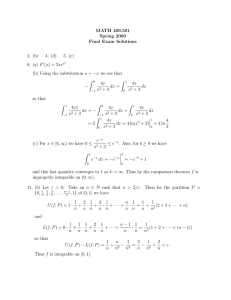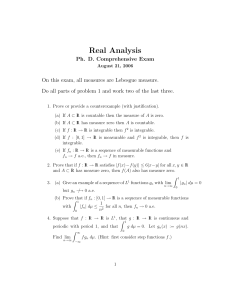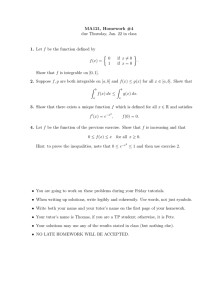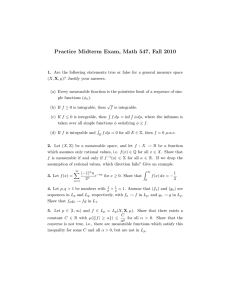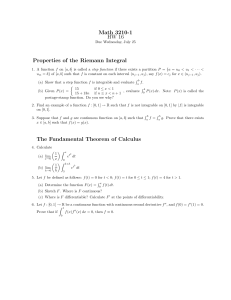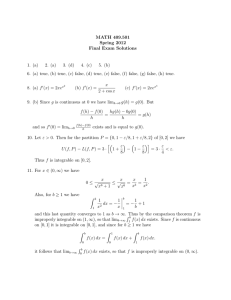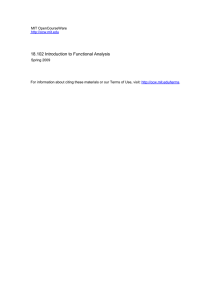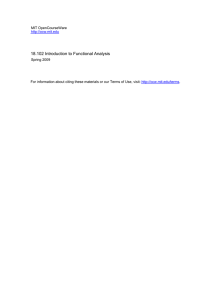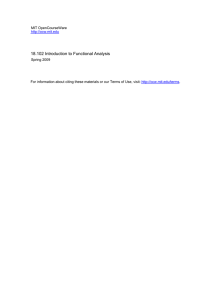Math 617 HW #4
advertisement
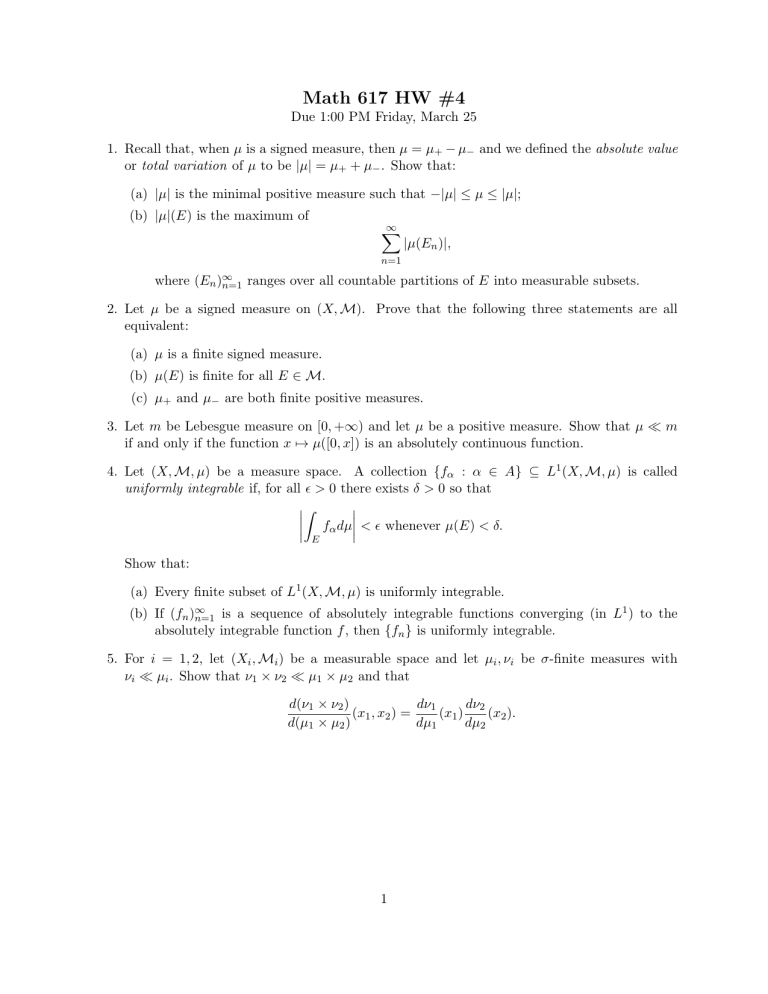
Math 617 HW #4
Due 1:00 PM Friday, March 25
1. Recall that, when µ is a signed measure, then µ = µ+ − µ− and we defined the absolute value
or total variation of µ to be |µ| = µ+ + µ− . Show that:
(a) |µ| is the minimal positive measure such that −|µ| ≤ µ ≤ |µ|;
(b) |µ|(E) is the maximum of
∞
X
|µ(En )|,
n=1
where (En )∞
n=1 ranges over all countable partitions of E into measurable subsets.
2. Let µ be a signed measure on (X, M). Prove that the following three statements are all
equivalent:
(a) µ is a finite signed measure.
(b) µ(E) is finite for all E ∈ M.
(c) µ+ and µ− are both finite positive measures.
3. Let m be Lebesgue measure on [0, +∞) and let µ be a positive measure. Show that µ m
if and only if the function x 7→ µ([0, x]) is an absolutely continuous function.
4. Let (X, M, µ) be a measure space. A collection {fα : α ∈ A} ⊆ L1 (X, M, µ) is called
uniformly integrable if, for all > 0 there exists δ > 0 so that
Z
fα dµ < whenever µ(E) < δ.
E
Show that:
(a) Every finite subset of L1 (X, M, µ) is uniformly integrable.
1
(b) If (fn )∞
n=1 is a sequence of absolutely integrable functions converging (in L ) to the
absolutely integrable function f , then {fn } is uniformly integrable.
5. For i = 1, 2, let (Xi , Mi ) be a measurable space and let µi , νi be σ-finite measures with
νi µi . Show that ν1 × ν2 µ1 × µ2 and that
d(ν1 × ν2 )
dν1
dν2
(x1 , x2 ) =
(x1 )
(x2 ).
d(µ1 × µ2 )
dµ1
dµ2
1
